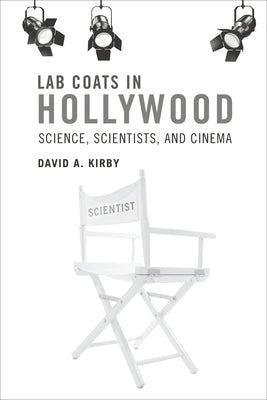Description
Stanley Kubrick's 2001: A Space Odyssey, released in 1968, is perhaps the most scientifically accurate film ever produced. The film presented such a plausible, realistic vision of space flight that many moon hoax proponents believe that Kubrick staged the 1969 moon landing using the same studios and techniques. Kubrick's scientific verisimilitude in 2001 came courtesy of his science consultants--including two former NASA scientists--and the more than sixty-five companies, research organizations, and government agencies that offered technical advice. Although most filmmakers don't consult experts as extensively as Kubrick did, films ranging from A Beautiful Mind and Contact to Finding Nemo and The Hulk have achieved some degree of scientific credibility because of science consultants. In Lab Coats in Hollywood, David Kirby examines the interaction of science and cinema: how science consultants make movie science plausible, how filmmakers negotiate scientific accuracy within production constraints, and how movies affect popular perceptions of science.
Drawing on interviews and archival material, Kirby examines such science consulting tasks as fact checking and shaping visual iconography. Kirby finds that cinema can influence science as well: Depictions of science in popular films can promote research agendas, stimulate technological development, and even stir citizens into political action.
Author: David A. Kirby
Publisher: MIT Press
Published: 02/08/2013
Pages: 280
Binding Type: Paperback
Weight: 0.96lbs
Size: 8.62h x 5.80w x 0.56d
ISBN13: 9780262518703
ISBN10: 0262518708
BISAC Categories:
- Science | Philosophy & Social Aspects
- Art | Film & Video
- Technology & Engineering | Social Aspects
About the Author
David A. Kirby is Lecturer in Science Communication Studiesat the Centre for History of Science, Technology, and Medicine at theUniversity of Manchester, England.

